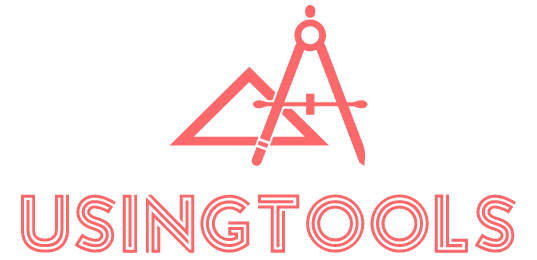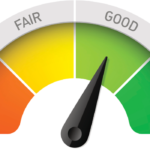What is myFICO?
myFICO is a service provided by Fair Isaac Corporation (FICO), the company that developed the widely-used FICO credit scoring model. It allows consumers to access their FICO credit scores directly from the source, along with detailed information about the factors influencing their scores.
The primary purpose of myFICO is to provide individuals with a comprehensive understanding of their credit standing and the ability to monitor their FICO scores on an ongoing basis. By subscribing to myFICO, users gain access to their FICO scores from the three major credit bureaus – Experian, Equifax, and TransUnion – as well as personalized analysis and insights to help them manage and improve their credit health.
myFICO offers various subscription plans tailored to meet different consumer needs, ranging from basic score monitoring to more advanced credit monitoring and identity theft protection services. With myFICO, users can track their credit score changes over time, receive alerts for significant score movements, and access educational resources to better understand the factors impacting their creditworthiness.
Table of Contents
Why is Your Credit Score Important?
Your credit score is a crucial factor that lenders, creditors, and even potential employers consider when making decisions about you. It is a numerical representation of your creditworthiness and financial responsibility. A higher credit score can open doors to more favorable terms and opportunities, while a lower score may lead to rejection or higher costs.
One of the primary reasons why your credit score is so important is its impact on lending decisions. Lenders use credit scores to assess the risk of lending to an individual. A higher credit score indicates a lower risk of default, making lenders more likely to approve loan applications and offer better interest rates and terms. Conversely, a lower credit score may result in loan denials or higher interest rates, which can significantly increase the overall cost of borrowing.
Your credit score also plays a role in determining the interest rates you receive on credit cards, mortgages, and other forms of financing. Individuals with higher credit scores are typically offered lower interest rates, as they are perceived as lower-risk borrowers. This can result in substantial savings over the life of a loan or credit card balance.
Furthermore, credit scores are often used by landlords, utility companies, and even potential employers to evaluate an individual’s financial responsibility. A poor credit score may make it more difficult to rent an apartment, secure utilities, or even land certain job opportunities, as it can be seen as an indicator of potential financial instability or irresponsibility.
In essence, your credit score is a powerful tool that can either open doors to financial opportunities or create barriers. Maintaining a good credit score is essential for securing favorable terms on loans, credit cards, and other financial products, as well as demonstrating your overall financial responsibility to potential lenders, landlords, and employers.
What Credit Bureaus Does myFICO Cover?
myFICO provides credit scores and reports from the three major credit bureaus in the United States: Experian, Equifax, and TransUnion. These credit bureaus are the primary organizations that collect and maintain consumer credit information, which is used to calculate credit scores.
Experian
Experian is one of the largest credit bureaus in the world, with operations in over 37 countries. It collects and maintains credit information on millions of consumers and businesses, which is used to generate credit reports and scores. Experian’s credit reports are widely used by lenders, employers, and others to evaluate an individual’s creditworthiness.
Equifax
Equifax is another major credit bureau that operates globally. It gathers and analyzes data on over 800 million consumers and 88 million businesses worldwide. Equifax’s credit reports and scores are relied upon by financial institutions, employers, and other organizations to make informed decisions about credit risk.
TransUnion
TransUnion is the third major credit bureau that myFICO covers. It collects and maintains credit information on consumers in the United States and several other countries. TransUnion’s credit reports and scores are used by lenders, landlords, and others to assess an individual’s creditworthiness and financial responsibility.
By providing credit scores and reports from all three major credit bureaus, myFICO offers a comprehensive view of an individual’s credit profile. This enables consumers to monitor their credit standing across different bureaus and take steps to improve their credit scores if necessary.
Understanding Your FICO Credit Score Range
Your FICO credit score ranges from 300 to 850, with higher scores indicating lower credit risk. The score is calculated based on various factors in your credit report, including payment history, amounts owed, length of credit history, new credit applications, and credit mix. Here’s a breakdown of the FICO score ranges:
Poor Credit (300-579): Scores in this range are considered poor and may make it difficult to obtain credit or secure favorable interest rates. Lenders often view consumers with scores in this range as high-risk borrowers.
Fair Credit (580-669): Scores in the fair range are below average and may still present challenges when applying for credit or loans. Lenders may approve applications but typically with higher interest rates or less favorable terms.
Good Credit (670-739): This range is considered good, and consumers with scores in this bracket are generally eligible for most credit products at reasonable interest rates. However, they may not qualify for the best rates or terms.
Very Good Credit (740-799): Scores in the very good range are above average and indicate a low credit risk to lenders. Consumers in this range are likely to receive favorable interest rates and terms on loans and credit cards.
Exceptional Credit (800-850): An exceptional credit score is a strong indicator of responsible credit management and a low risk of default. Consumers with scores in this range are likely to qualify for the best interest rates and terms available.
It’s important to note that credit score ranges may vary slightly depending on the credit scoring model used by lenders or creditors. However, the FICO score is widely accepted and used by most major lenders in the United States.
Factors That Affect Your FICO Score
Your FICO credit score is calculated based on several key factors, each carrying a different weight in the overall calculation. Understanding these factors can help you make informed decisions to maintain or improve your credit score.
Payment History (35%): This is the most significant factor influencing your FICO score. It reflects your track record of making on-time payments for credit accounts such as loans, credit cards, and other types of financing. Late or missed payments can severely impact your score, so it’s crucial to maintain a consistent and timely payment history.
Amounts Owed (30%): This factor considers the total amount of debt you owe in relation to your available credit limits. It includes your credit card balances, outstanding loans, and other types of credit accounts. Maintaining a low credit utilization ratio (the amount of credit you’re using compared to your total available credit) can positively impact your score.
Length of Credit History (15%): The length of time you’ve had credit accounts open contributes to your FICO score. A longer credit history demonstrates your experience in managing credit responsibly over an extended period. Closing older accounts can potentially shorten your credit history and negatively affect your score.
Credit Mix (10%): This factor evaluates the variety of credit accounts you have, such as credit cards, installment loans, mortgages, and other types of financing. Having a diverse mix of credit accounts can positively influence your score, as it shows your ability to manage different types of credit responsibly.
New Credit (10%): This factor considers your recent credit inquiries and the number of new accounts you’ve opened. Opening several new accounts in a short period can be viewed as a higher risk, potentially lowering your score. However, rate shopping for specific types of loans, such as mortgages or auto loans, within a short timeframe is typically treated as a single inquiry.
By understanding these key factors and their relative importance, you can make informed decisions to maintain or improve your FICO credit score. Remember, responsible credit management and timely payments are essential for a strong credit profile.
Benefits of myFICO
Signing up for myFICO offers several key advantages for managing your credit health. One of the primary benefits is direct access to your FICO credit scores from all three major credit bureaus – Experian, Equifax, and TransUnion. These scores are the ones most widely used by lenders when evaluating applications for loans, credit cards, mortgages, and more.
With myFICO, you’ll not only see your scores but also get detailed explanations of the factors impacting your scores and personalized insights on how to improve them. This level of transparency empowers you to make informed decisions about your credit.
Another significant benefit is the ability to monitor your credit reports from all three bureaus. You’ll receive alerts whenever there are significant changes to your reports, helping you stay on top of any potential errors or fraudulent activity. Early detection is crucial for protecting your credit and identity.
In addition to credit monitoring, myFICO provides identity protection tools to safeguard your personal information. These include dark web monitoring, social security number tracking, and lost wallet protection, giving you an extra layer of security against identity theft.
Overall, myFICO is a comprehensive credit management solution that offers valuable insights, monitoring capabilities, and protection services, all designed to help you understand, build, and maintain a healthy credit profile.
How to Sign Up for myFICO
Signing up for myFICO is a straightforward process that can be completed in a few simple steps. Here’s how you can get started:
- Visit the myFICO Website: Head over to the official myFICO website (www.myfico.com) and click on the “Sign Up” or “Get Started” button.
- Choose Your Plan: myFICO offers several plan options to suit different needs and budgets. These plans include:
- Basic Plan: This plan provides access to your FICO credit scores from three major credit bureaus (Experian, Equifax, and TransUnion), along with credit reports and monitoring.
- Advanced Plan: In addition to the features of the Basic Plan, the Advanced Plan offers credit score simulators, identity theft monitoring, and more.
- Premier Plan: The Premier Plan is the most comprehensive option, including all the features of the Advanced Plan, along with additional credit report monitoring and identity theft protection services. Review the plan details and pricing to select the option that best fits your requirements.
- Create Your Account: Once you’ve chosen your plan, you’ll be prompted to create an account. Provide your personal information, such as your name, address, and date of birth. You’ll also need to set up a secure password for your account.
- Provide Payment Information: myFICO requires a subscription fee, which varies depending on the plan you’ve chosen. Enter your payment details, such as your credit card or debit card information.
- Complete the Enrollment Process: After providing your payment information, review and confirm your subscription details. Once you’ve completed the enrollment process, you’ll have access to your myFICO account and can start monitoring your credit scores and reports.
It’s important to note that myFICO offers various subscription plans with different pricing options. The Basic Plan starts at around $29.95 per month, while the Advanced and Premier Plans have higher monthly fees. Additionally, you may be eligible for discounts or promotions, so be sure to check for any available offers during the sign-up process.
Monitoring Your Credit with myFICO
Monitoring your credit is crucial for maintaining good financial health, and myFICO provides a comprehensive suite of tools to help you stay on top of your credit situation. With myFICO, you can access your credit reports and scores from all three major credit bureaus – Experian, Equifax, and TransUnion – in one convenient location.
One of the key features of myFICO is the credit monitoring service, which alerts you to any changes or potential issues with your credit reports. This includes notifications for new credit inquiries, account openings or closures, changes in personal information, and more. These alerts can help you stay vigilant against identity theft and catch any errors or fraudulent activities early on.
myFICO also offers a credit score simulator, which allows you to see how different financial decisions, such as opening a new credit card or paying off a loan, could potentially impact your credit score. This valuable tool can help you make informed choices and understand the factors that influence your credit standing.
In addition to monitoring your credit, myFICO provides detailed analysis and explanations of your credit data. You can access in-depth reports that break down your credit history, payment patterns, credit utilization, and other factors that contribute to your overall score. This information can be invaluable in understanding your credit profile and identifying areas for improvement.
Furthermore, myFICO offers personalized credit advice and resources to help you improve your credit score over time. You can access educational materials, credit management tips, and even one-on-one consultations with credit experts to develop a tailored strategy for achieving your credit goals.
Overall, myFICO’s credit monitoring and analysis tools provide a comprehensive and user-friendly way to stay informed about your credit situation, identify potential issues, and take proactive steps to maintain or improve your credit standing.
Tips for Improving Your Credit Score
Improving your credit score takes time and discipline, but it’s achievable by following some key strategies:
Pay Bills on Time: Payment history is the most significant factor affecting your credit score. Make sure to pay all your bills on time, every time. Set up automatic payments or payment reminders if needed.
Reduce Outstanding Debt: High credit card balances can significantly hurt your credit utilization ratio, which compares your balances to your total credit limits. Aim to keep your balances below 30% of your total credit limit.
Limit New Credit Applications: Each application for new credit results in a hard inquiry on your credit report, which can temporarily lower your score. Only apply for new credit when absolutely necessary.
Increase Credit Limits: Request a higher credit limit on your existing cards. This can improve your credit utilization ratio without increasing your debt.
Fix Credit Report Errors: Errors on your credit report can drag down your score. Dispute any inaccuracies with the credit bureaus.
Build a Mix of Credit: Having different types of credit (credit cards, loans, etc.) can benefit your score by demonstrating your ability to manage various credit products responsibly.
Maintain Long Credit History: The length of your credit history impacts your score, so keep your oldest accounts open and active, even if you don’t use them frequently.
Be patient and consistent with these strategies. Improving your credit score takes time, but the benefits of a higher score are well worth the effort.
myFICO vs Other Credit Monitoring Services
While there are many credit monitoring services available, myFICO stands out as the official source for your FICO credit scores. Unlike other services that provide educational credit scores or VantageScores, myFICO gives you access to your actual FICO scores used by lenders.
One key advantage of myFICO is its direct relationship with the FICO scoring model. This means you get the most accurate and up-to-date information about your credit standing. Additionally, myFICO provides detailed analysis and tools to help you understand your credit profile and make informed decisions.
However, myFICO does come with a cost, ranging from a one-time report fee to monthly subscription plans. Other services like Credit Karma and Credit Sesame offer free credit monitoring and educational scores, making them more accessible for those on a tight budget.
It’s important to note that while free services can be valuable for tracking your credit health, they may not provide the same level of detail and accuracy as myFICO. If you’re actively seeking a loan or have specific credit-related goals, investing in myFICO can be beneficial as it gives you a comprehensive view of your creditworthiness from the lender’s perspective.
Ultimately, the choice between myFICO and other credit monitoring services depends on your specific needs and budget. If you prioritize accuracy, in-depth analysis, and direct access to your FICO scores, myFICO may be the better option. However, if you’re looking for a more affordable way to monitor your credit and receive educational insights, free services like Credit Karma or Credit Sesame could be a good starting point.



